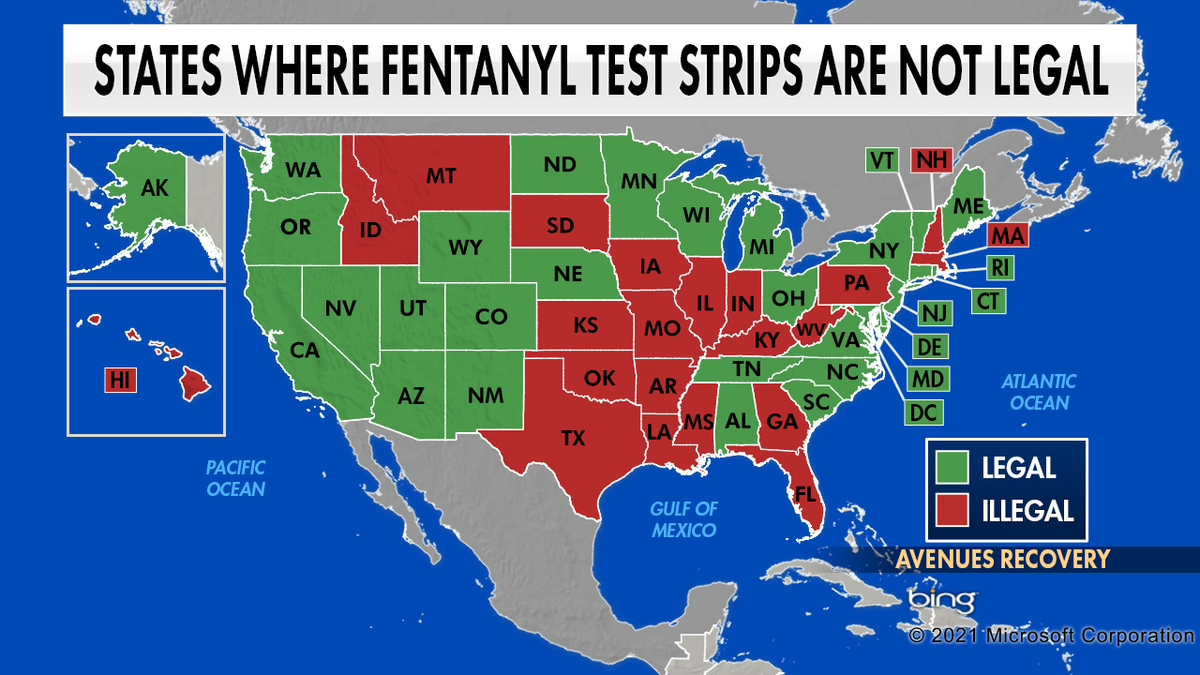U.S.-China Trade Talks: The Unexpected Role Of The Fentanyl Crisis

Table of Contents
The Fentanyl Pipeline: How China Plays a Role
The flow of fentanyl into the United States is a complex, multi-national operation, and China plays a crucial, albeit often obscured, role. Understanding this role is critical to addressing the crisis effectively and informing U.S.-China trade policy.
Precursor Chemicals: The Foundation of the Crisis
China's role as a major supplier of precursor chemicals used in fentanyl synthesis is a significant factor driving the opioid crisis. These chemicals, the building blocks of fentanyl, are readily available in certain Chinese regions due to lax regulations or a lack of effective enforcement.
- Lax Regulations: The absence of stringent controls and oversight in some areas of China allows for the easy export of these precursor chemicals, often with minimal tracking or accountability.
- Untraceable Supply Chains: The opacity of the supply chain makes tracing the origin and movement of these chemicals incredibly difficult, hindering law enforcement efforts to disrupt the flow. This necessitates international collaboration to improve tracking and transparency.
- U.S. Pressure for Regulatory Reform: The U.S. government has consistently pressured China to implement stricter regulations on the export of these precursor chemicals, viewing it as a critical step in curbing the fentanyl crisis. These pressures are often intertwined with broader trade discussions.
Transit and Smuggling Routes: A Complex Network
Once precursor chemicals reach other countries, often Mexico, they are synthesized into fentanyl and then smuggled into the U.S. This process involves sophisticated networks and methods, presenting significant challenges for law enforcement agencies.
- Sophisticated Smuggling Techniques: Cartels employ increasingly inventive methods for smuggling fentanyl, utilizing various transportation routes and concealment techniques to evade detection.
- Transnational Criminal Organizations: The involvement of transnational criminal organizations underscores the global nature of this problem, highlighting the need for international collaboration to dismantle these networks. These groups often have established connections in both China and Mexico.
- The Role of the Dark Web: Online marketplaces and the dark web provide a readily available platform for the illegal trade of fentanyl and its precursors, further complicating enforcement efforts and requiring a robust digital response.
The Impact on U.S.-China Trade Negotiations
The fentanyl crisis has undeniably influenced U.S.-China trade negotiations, becoming a significant lever for the U.S. to pressure China into taking stronger action.
Leverage and Pressure: Using the Crisis as a Bargaining Chip
The U.S. uses the devastating consequences of the fentanyl crisis as leverage in trade negotiations with China, demanding stricter regulatory measures and increased cooperation in combating the illegal drug trade.
- Demanding Regulatory Action: The U.S. utilizes the crisis to push for more robust regulatory frameworks within China, aiming to restrict the flow of precursor chemicals.
- Potential for Trade Sanctions: The threat of trade sanctions or tariffs serves as a powerful incentive for China to address the issue, though it can also escalate tensions.
- Political Implications: The fentanyl crisis adds another layer of complexity to the already strained relationship between the two countries, impacting broader trade negotiations and increasing political risks.
Counterarguments and China's Response: A Complex Narrative
China, however, presents its own perspective, often arguing that it is actively working to combat the illegal drug trade and that the responsibility lies partly with other nations.
- China's Counter-Narcotics Efforts: China claims to have implemented various measures to combat drug trafficking, though the effectiveness of these measures is often debated.
- Concerns about Accusations: China might express concerns about the U.S.'s accusations, arguing that they could negatively affect bilateral relations and hinder broader cooperation.
- Limited Instances of Cooperation: Despite the challenges, there have been limited instances of cooperation between the two countries on drug enforcement, suggesting potential avenues for future collaboration.
Beyond Trade: International Cooperation and Public Health
Addressing the fentanyl crisis requires a global response that goes beyond trade negotiations, focusing on international cooperation and public health initiatives.
The Need for Global Collaboration: A Transborder Challenge
The transborder nature of the fentanyl crisis necessitates international cooperation to effectively tackle this problem. A concerted effort involving multiple countries is essential.
- Joint Enforcement Efforts: Shared intelligence, coordinated law enforcement operations, and joint investigations are crucial for dismantling transnational criminal organizations.
- Role of International Organizations: International organizations like the United Nations Office on Drugs and Crime (UNODC) play a crucial role in coordinating international efforts, providing expertise, and facilitating collaboration.
- Prevention and Treatment Initiatives: Investment in drug prevention programs, treatment facilities, and rehabilitation initiatives is crucial to addressing the crisis at its roots.
Public Health Implications: A Devastating Crisis
The fentanyl crisis has had a devastating impact on public health in the U.S., leading to a surge in overdose deaths and fueling a broader opioid epidemic.
- Escalating Overdose Deaths: The increasing number of overdose deaths attributed to fentanyl underscores the urgency of the situation and the need for immediate action.
- Social and Economic Costs: The opioid crisis imposes significant social and economic burdens on communities across the U.S., requiring substantial resources for healthcare, social services, and law enforcement.
- Funding for Treatment and Prevention: Increased funding for addiction treatment programs, harm reduction initiatives, and prevention education is vital for mitigating the long-term impact of the crisis.
Conclusion
The intertwined nature of U.S.-China trade talks and the fentanyl crisis highlights the complexities of modern international relations. While trade negotiations often focus on economic issues, the devastating impact of fentanyl demands a multifaceted approach that transcends economic considerations. The U.S. must continue to leverage all available tools, including trade pressure, to push for meaningful action from China to stem the flow of precursor chemicals and ultimately curb the deadly fentanyl crisis. Only through sustained international cooperation and comprehensive strategies can we hope to effectively address this urgent global challenge. Continued vigilance and proactive engagement on the issue of U.S.-China trade talks and the fentanyl crisis are crucial for securing a safer future.

Featured Posts
-
 Bao Mau Bao Hanh Tre Em Tien Giang Dam Bao An Toan Cho Tre La Trach Nhiem Cua Ai
May 09, 2025
Bao Mau Bao Hanh Tre Em Tien Giang Dam Bao An Toan Cho Tre La Trach Nhiem Cua Ai
May 09, 2025 -
 Celebrity Antiques Road Trip How To Participate And Find Your Own Treasures
May 09, 2025
Celebrity Antiques Road Trip How To Participate And Find Your Own Treasures
May 09, 2025 -
 Nyt Strands Game 376 Hints And Solutions For March 14
May 09, 2025
Nyt Strands Game 376 Hints And Solutions For March 14
May 09, 2025 -
 Palantir Stock To Buy Or Not To Buy Before May 5th
May 09, 2025
Palantir Stock To Buy Or Not To Buy Before May 5th
May 09, 2025 -
 Living Legends Of Aviation A Tribute To Firefighters And First Responders
May 09, 2025
Living Legends Of Aviation A Tribute To Firefighters And First Responders
May 09, 2025
